We hear that the great Georgian bass Paata Burchuladze has been appointed artistic director of the Mikhailovsky Theatre in St Petersburg.
He will also sing in some productions.
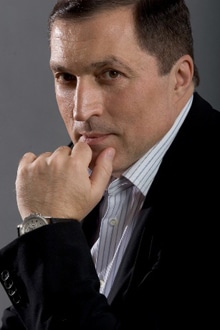
Burchuladze was recently a presidential candidate in Georgia.
We hear that the great Georgian bass Paata Burchuladze has been appointed artistic director of the Mikhailovsky Theatre in St Petersburg.
He will also sing in some productions.

Burchuladze was recently a presidential candidate in Georgia.
Reuben Allred was completing a doctorate at the University of North Texas while working as assistant chorus master at the Dallas Opera.
A talented pianist with a gift for friendship, he was found dead on Monday with a self-inflicted gunshot wound near a pond in South Denton, Texas.
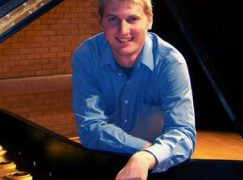
His death has been classified a suicide.
The university has established a fund in his memory.
Pamela Paul, Regents professor of piano at UNT, said: ‘Seldom have I known someone so responsible, so committed, so hardworking and so ethical.’
Here’s his two-hand reduction of Rite of Spring.
Gottfried Wagner, black-sheep son of the Wolfgang dynasty, has donated his books and papers to the Zurich public library, it was disclosed today.
Gottfried, who is 70 this week, has written extensively about the antisemitism of the Wagner family and its complicity in Hitler’s crimes.
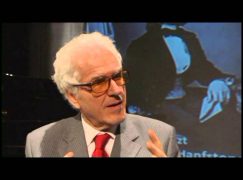
A: I haven’t made that many mistakes.
Interview here.
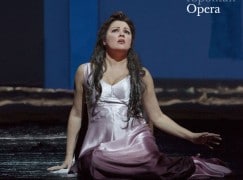
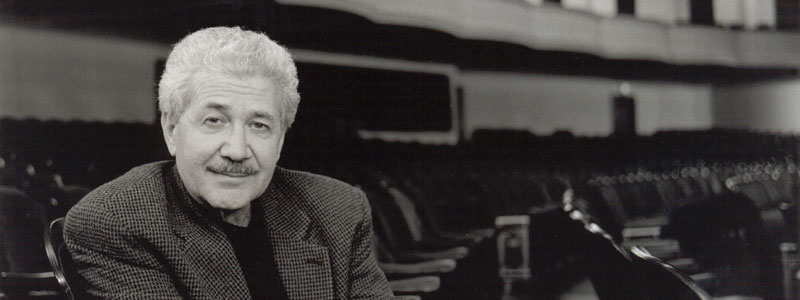
David continues to be vitally engaged with our company and we look forward to celebrating his legacy with our season-ending production of David’s opera “Cyrano” and the Grand Salute, a long-planned and uplifting celebration of David’s life work.
Below is a personal letter from David, that we would like to share with you.
Dear Friends,
Over the past two years I’ve been planning for my formal departure from the opera company and the opera house that I’ve built along with the love and help of so many of you and your fellow opera and dance devotees. For me it has been a true labor of love, one in which I’ve been given back so much more than I’ve given. Saying “so long” is bittersweet to say the least, but the time is right for me to move on.
In recent months I’ve had the pleasure and excitement of watching as plans take shape for the incredible Gala weekend being planned in my honor in May. The weekend will be a wonderful capstone to my career as well as a fitting kickoff for the exciting future of Michigan Opera Theatre. I hope you will be able to share it with me.
Life, of course, is never predictable. As someone once said, we don’t lead our own lives; they lead us. And often they surprise us, as mine has recently done.
I have been diagnosed with pancreatic cancer. But I fully intend to be at the May celebration. I don’t want that Gala to be turned into a memorial. I want to be there, to see all my friends and family, to personally thank you for your love and support, and to truly celebrate the future of Michigan Opera Theatre and the City of Detroit with you. The opera house and the opera company will stand for many years as my legacy to Detroit and to opera and, with the exception of my family, they will always be my proudest achievement.
At 82 years I have lived an unbelievably rich and rewarding life and when the time comes I’ll leave it with few regrets. Your friendship is among my greatest treasures. You will always be in my heart and I hope some part of me will always be in yours. I look forward to seeing you at the Gala and to sharing a great evening together.
Sincerely,
David DiChiera
The Russian president has banned a television show that violates human rights. This may not be his main reason for ordering Russian media to black out this year’s Eurovision contest, but his action sets the tone for what we should all be doing and I support him in it to the hilt.
Eurovision was designed from the outset to bring out the worst in human nature. The early years were spent gloating at the peculiarities of other ethnicities – look at the Swiss chap yodelling! why all do Italians croon? what does that Norwegian think he’s playing? (Doesn’t matter, he’ll get nul points.)
Around the midpoint, entrants started imitating American pop and singing in English. Commentators rocked with mirth. The hilarity increased as presenters realised how desperate small nations were to do well in Eurovision and how easy it was to mock their pretensions, knowing that few could afford to stage the monster show without blowing ten years of their GDP.
Ho, ho, bloody ho.
And then it got really bloody. Last year Ukraine and Russia fought a proxy war on Eurovision. Ukraine won with a song that lamented Russian acts of ethnic cleansing.
This year, Ukraine banned Russia’s singer because she had performed in Crimean territories seized by Russia.
So Russia is blacking out Eurovision.
And so should we all.
This nasty sneer show has no place in modern civilisation.
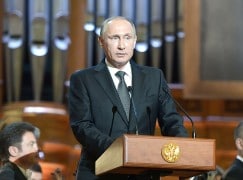
From our Friday diarist, violinist Anthea Kreston:
Perfectionism
I am being driven to the train from another glorious visit to the Queen Elizabeth Chapel in Brussels, where my quartet is the master chamber music teachers. Tonight, I am excited to have another opportunity to perform Beethoven Op. 130/133.
To know that a late Beethoven is on the second half of a concert program makes one focus in a unique way. Concentration and energy must be precisely controlled throughout the concert (and during the rehearsal) to allow for the extreme demands of the work to come. Compounding this plan is the fact that this particular Beethoven has, as its final movement, the Grosse Fugue, perhaps the most dense and demanding work written for the string quartet.
There are five movements before we reach the Fugue, each with their own specific technical and emotional demands. The first movement is a huge work itself – with interwoven 16th note passages and fragments of complex melodies which pass quickly between members. It is easy to make a mess of this movement – both for the musicians and the audience. Too much concern with the structure and details (which of course have to be controlled with the precision of laser surgery) mean that the danger of losing the audience, who we need with us for the next 50 minutes, is real and quite probable. Perhaps the same way as a surgeon has to equally balance her technique with her bedside manner. If trust with the audience is lost, regaining it is painstaking and often futile. My main goal here is to infuse the work with as much warmth as possible – the structure won’t speak to everyone, but the base emotions can.
After these next concerts, I have, again, the opportunity to stand among three musicians who I respect and admire greatly, and to be welcomed by them into a world that they have taken thousands of hours to craft, to investigate. I prepare my part of the puzzle, knowing that they have performed this piece countless times, on stages throughout the world, and have recorded and won the coveted Echo Award (the Grammy of Europe) for this particular piece. There is no place for me to hide – no way for me to enter at the level of knowledge, technical perfection, or emotionally be on the same wavelength as them. There is no way to win. I must be humble as well as confident. So here is the dilemma.
As musicians, we face enormous pressure to be perfect. Technically, emotionally, even physically. But this pressure can, in fact, produce the opposite results. It can lead to injury, self-doubt, and a lack of sincerity. It can tip the balance and make us start to care what others think more than what you, yourself, value. I get an extraordinary amount of input from all sides – not only from my colleagues, but from reviews, audience members, and business partners. How to balance this with my own incessant self-criticism can be crushing.
So – what do I do? I create a series of locks – if one overflows, I have many other options on which to rely. I don’t step into that first rehearsal with one fingering option which has been drilled with a metronome. I have a handful of options – colors, fingerings, tempi, bowings. I read about the composer at that particular point in his life, the specific piece, the geopolitical climate during which it was written. I utilize the 80/20 rule – also known as the “the law of the vital few” or the “Pareto Principal”, after the Italian economist who discovered it in 1896. This is, actually, the way I have survived this past year in almost all ways.
Vilfredo Pareto, an avid gardener, observed that 80% of his peas grew from only 20% of his pea pods. He then threw his net wider, and, as an economist, discovered that 80% of the land in Italy was owned by 20% of the population. This ratio is prevalent in business as well – 80% of income comes from 20% of clients, and this ratio exists through many natural and man-made situations. As a violinist, I was familiar with the method developed by my mother-in-law, which, I am sure, was discovered in a moment of sheer panic when she realized, as all mothers do, that we have about 10 times as much work that needs to be done, immediately, than we have the time for.

Here is the method. Put your music on a stand as far away from you as you can – across the room. Then extend your bow arm, with bow pointed towards the page. Locate the darkest part of the page, and walk towards it, aiming with your bow. When the bow strikes the page, this is the part you have to practice. And you probably have 2 minutes to do it, because I can already smell dinner burning.
So – this is the way I prepare – as much without the violin as possible – on trains or planes, in bed late at night with a score or book. With the 80/20 method. And, with a healthy dose of self-forgiveness and humor as I walk into that room, knowing that I am not here to replicate something that has happened before, but to respect, acknowledge, learn, and share.
Opera de Marseille has announced the death, aged 58, of the American soprano Kathleen Cassello.
Originally from Delaware, Kathleen became a stalwart on the Italian and French opera circuits after winning the 1985 Salzburg Mozart competition.
Her greatest renown came in 1997 when the impresario Tibor Rudas picked her as one of Three Sopranos, a feminine counterweight to his phenomenally successful Three Tenors.
But although they toured twice with Pavarotti, the Three Sopranos – the other two were Kallen Esperian and Cynthia Lawrence – never quite stormed the ramparts in the same way.
Her early death, on April 12, has cast a pall over the opera world. She was a fine performer and good colleague.
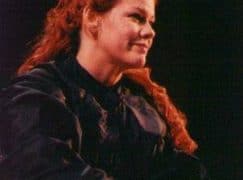
One of these could be your lunch.